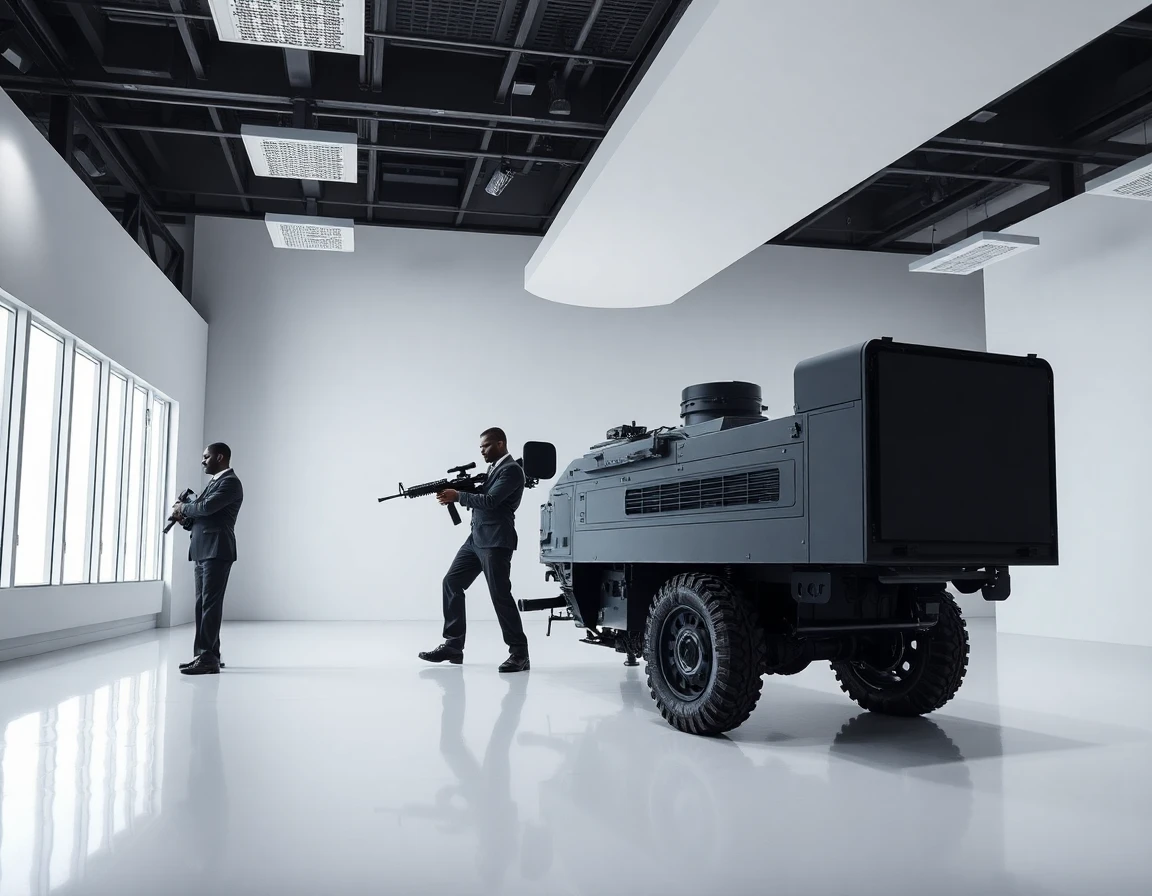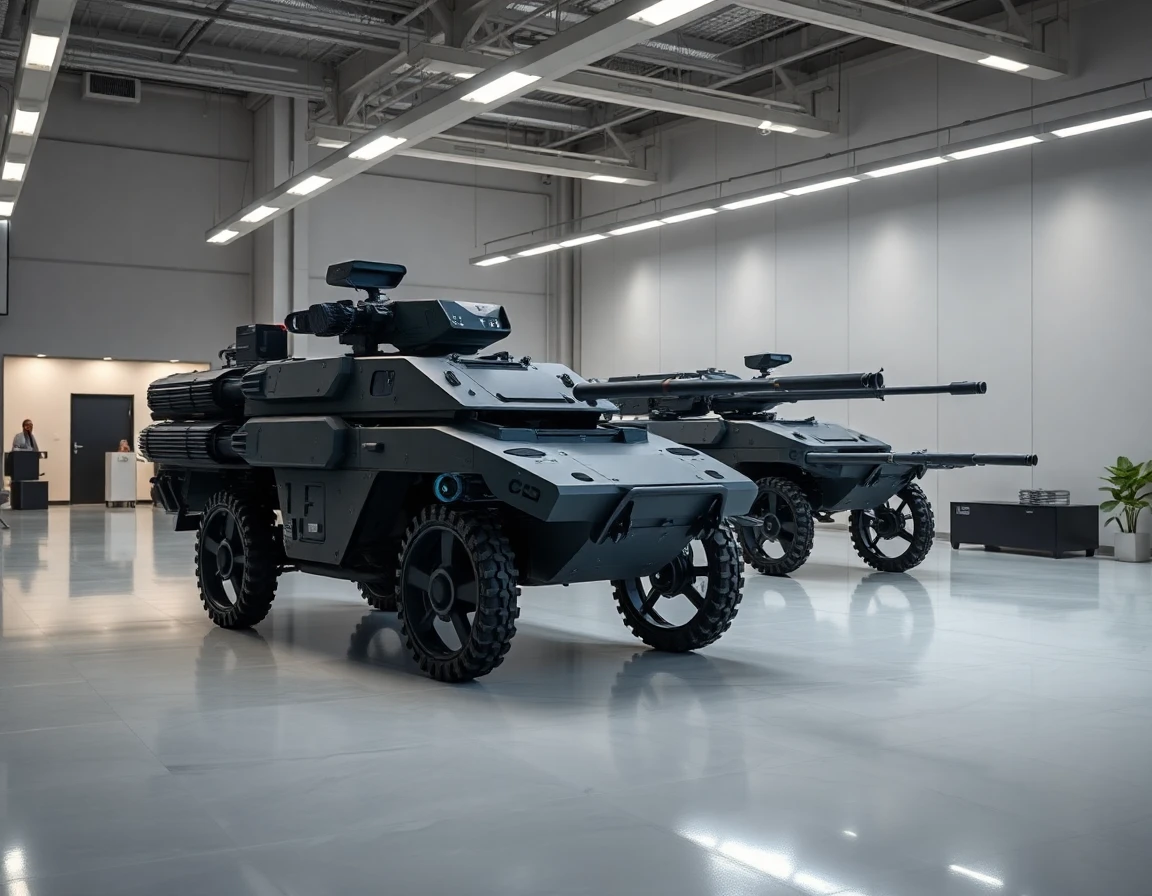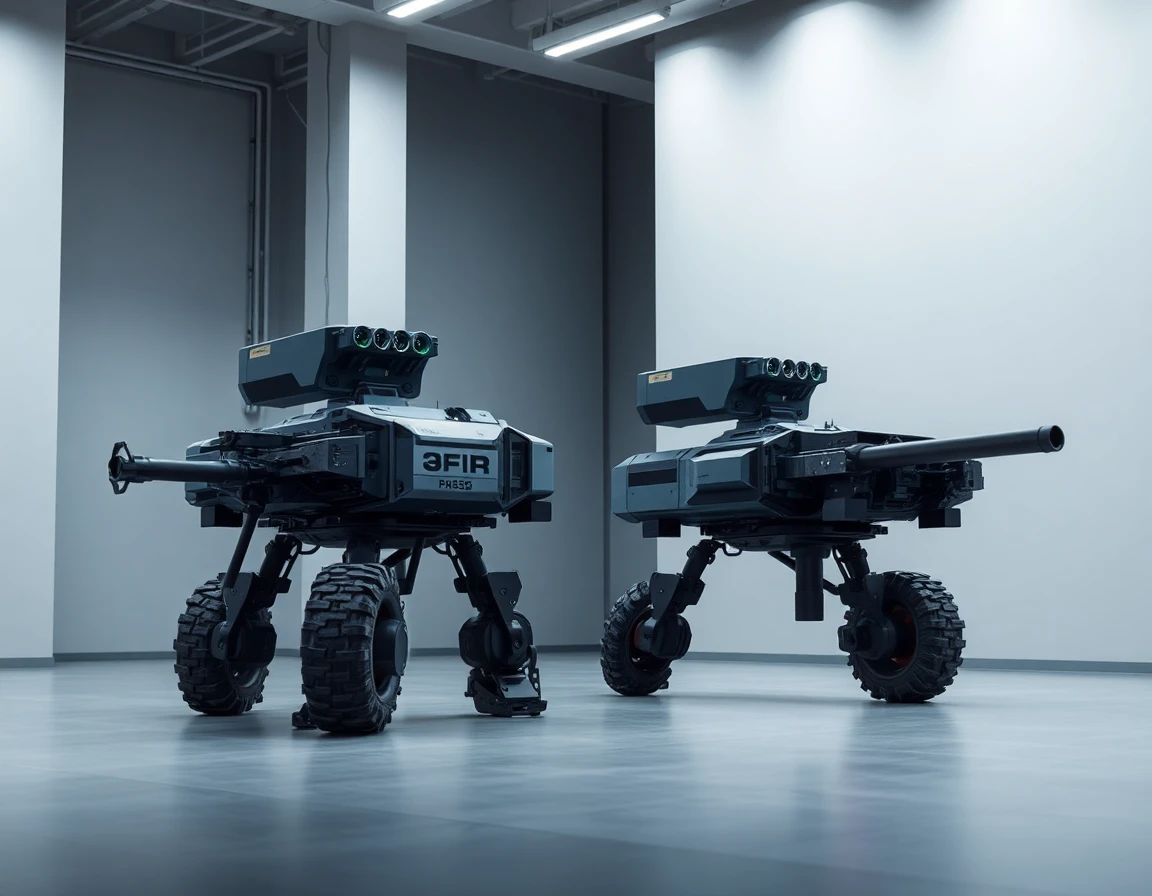Introduction to Autonomous Defense Systems
In the ever-evolving landscape of military technology, autonomous defense systems have emerged as a game-changer. These systems leverage artificial intelligence (AI) to enhance surveillance and combat capabilities, paving the way for more efficient and effective defense strategies. Recent field testing results reveal promising advancements in this domain, indicating significant implications for military operations worldwide.
Latest Field Testing Results
Recent trials have demonstrated the effectiveness of AI-driven autonomous systems in various combat scenarios. For instance, autonomous drones equipped with advanced radar systems have shown remarkable precision in identifying and tracking threats. According to military analyst Dr. Sarah Thompson, “The integration of AI in defense systems allows for faster decision-making and reduces the risk to personnel on the ground.”
These tests included scenarios involving hypersonic systems, which are capable of traveling at speeds exceeding Mach 5. The combination of hypersonic technology and autonomous defense capabilities enables rapid response to emerging threats, transforming the dynamics of aerial warfare.
Technical Specifications and Capabilities
Autonomous defense systems are designed with multiple functionalities, including real-time data analysis, target recognition, and threat mitigation. Key components often include:
- High-precision navigation systems that ensure accurate positioning and movement of assets in dynamic environments.
- Advanced sensor technologies that gather critical intelligence for informed decision-making.
One notable product enhancing these capabilities is the Compact Sensor Module for Aerospace Applications, which provides high-performance inertial sensing, optimized for defense and industrial contexts. These sensors enable autonomous systems to operate effectively in challenging conditions, ensuring reliability and efficiency.
Industry Context and Analysis
The push towards autonomous defense systems is not just a technological trend; it reflects a broader shift in military strategy. Many nations are investing heavily in AI and automation technologies to maintain a competitive edge. As noted by defense expert Colonel Mark Reynolds, “The future of warfare will heavily rely on autonomous systems, as they provide unparalleled advantages in both offensive and defensive operations.”
Moreover, the integration of these systems is expected to reduce operational costs significantly. The ability to automate certain functions allows military personnel to focus on strategy and planning rather than routine tasks.
Potential Impacts on Modern Warfare
The implications of deploying autonomous defense systems are profound. As these technologies become more sophisticated, the potential for rapid and precise military responses increases. However, this shift raises ethical questions regarding the role of AI in warfare. Critics argue that over-reliance on autonomous systems may lead to unintended consequences, including escalated conflicts and collateral damage.
Furthermore, the adoption of autonomous systems raises the stakes in international relations. Nations with advanced military technologies may find themselves in a new arms race, as they strive to outpace each other in developing effective autonomous solutions.
Future Developments
Looking ahead, the evolution of autonomous defense systems will likely involve enhanced collaboration between human operators and AI technologies. The goal is to create hybrid systems where human intuition and AI efficiency work in tandem, maximizing the strengths of both.
Additionally, advancements in navigation systems for aerospace applications will play a crucial role in improving the effectiveness of these autonomous platforms. Systems that incorporate cutting-edge gyroscopic technology can provide better stability and accuracy, further enhancing the operational capabilities of unmanned systems.
In conclusion, the rise of autonomous defense systems signifies a transformative era in military operations. As nations continue to invest in AI technologies and automation, the future of warfare will undoubtedly be reshaped. While these advancements promise greater efficiency and reduced risks, careful consideration of their ethical implications and geopolitical impacts remains essential.
Conclusion
The integration of autonomous systems into defense strategies represents a significant leap forward in military technology. As field tests continue to validate their efficacy, the conversation surrounding their use will only intensify. Stakeholders across the globe must navigate the challenges and opportunities presented by these cutting-edge technologies, ensuring that their implementation promotes security and stability in an increasingly complex world.



